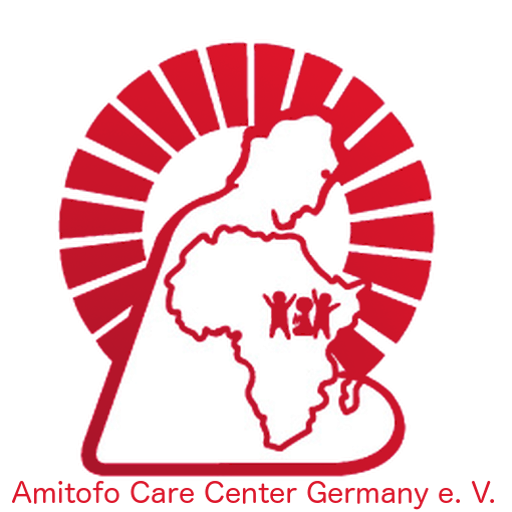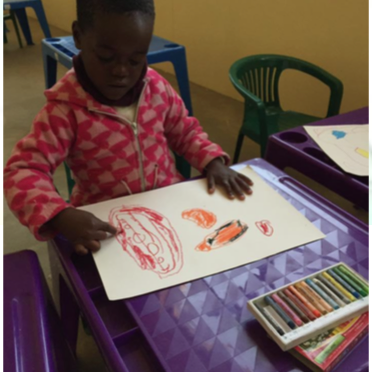Lecture on 18.02.2018 for the New Year Celebration
at the Amitofo Care Centre Germany e.V.
In Düsseldorf
2 Months at Amitofo Care Centre of Namibia (abbrv. ACC Namibia or Centre)
Report by Beatrix von Eycken
Page 3:
The children at ACC Namibia: the admission process
The children I encountered there were between 6 and 8 years old. The admission process is very time-consuming: The legal guardians can contact ACC Namibia via SMS, Whatsapp, telephone or e-mail. Each request will be responded. Towards the end of the year, in time for the start of the new school year (in January of each year), the director and the Namibian social worker Martha set off. All children for whom an application has been made will be visited. From time to time Min and Martha are accompanied by other staff, if e.g. translators are needed. There are 11 ethnic groups with their own languages in Namibia. English or Afrikaans is not always spoken in the families. In these cases, local employees with the appropriate language skills are drawn to translate.
Visits to the children serve to form an understanding of the circumstances in which they live. Orphans will be definitely accepted, half-orphan often. For the children, who still have both parents, a matrix has been developed that assesses: in which environment do the children live, do the parents have work, are the parents able to take care of the children, etc. Photos and a report from each child will be taken. Only after all children have been visited, the choice then be made. At the end of 2017, there were more than 100 applications, which means over 100 visits had to be done. And the distances in Namibia are great …
At the beginning of the school year, the children will be picked up by ACC Namibia and examined at the nearest hospital at the expense of the organization. This is where life begins in the Centre: Once you are admitted, all the school education, school supplies, drugstore items for the children, medical care, are provided by Centre. Also – if necessary – the journey to the family, because once or twice a year it goes back home. Shortly before the start of the big holiday in December, just before the end of the school year, the parents are invited to a Family Day. The children practice dances, songs, small plays and Kung-Fu choreographies, which they proudly show their parents. The parents should get an impression of the life of their children in the Centre. If the parents can not come because of the distances, they will be picked up and later brought home together with the children.
The children and the school
The school education is based on the Namibian curriculum and consists of the classes 1 – 12. The school operation in the Centre is still developing currently. At the end of 2017 there were the classes Pre-Primary and 1 and 2. With each school year the following will be added. Local teachers teach. Their selection emphasizes that they can live up to the circumstances. The children are coming from a difficult environment and have already been through a lot. They bring their problems, fears and worries to the Centre and often feel homesick at the beginning. All these need to be taken by experienced educators. To ensure this, the Namibian principal accompanies the selection of appropriate forces.
The additional offer from Centre also helps the children to settle in: they move a lot and receive Kung-Fu as well as meditation lessons. The principal confirmed that this helps them to calm down after a period of exercise. In order to increase the career opportunities of the children, they also receive Chinese lessons. Classes in these subjects are given by Asian teachers.
How do the children live?
The children live together with their nannies. A nanny takes care of 8 children, spends her time outside school, is the contact person and sleeps next door, so that the children are never alone. ACC Namibia strives to hire nannies from the same ethnic groups as the children. This is to make sure that they do not lose their roots, that they do not forget their own language (the school teaches English and Afrikaans, the lessons themselves take place in English), get to know their own songs and dances. Several children sleep in a room. Each has a desk, storage space for his or her belongings and a bed.
Martha, the Namibian social worker, is also always available with help and advice. She is a woman with great work experience, to whom children and employees trust. The children can contact her at any time, as well as the nannies, if they notice any abnormalities.



